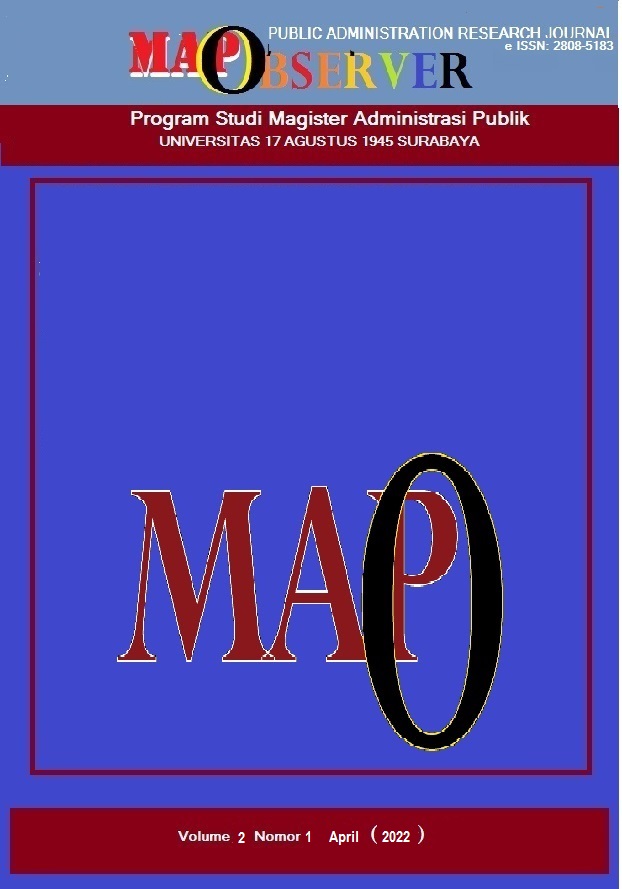STRATEGIC PLANNING FOR TOURISM VILLAGE DEVELOPMENT: ANALYSIS OF POTENTIALS AND PROBLEMS IN NOEPESU VILLAGE BARAT MIOMAFFO DISTRICT NORTH TIMOR TIMOR REGENCY
DOI:
https://doi.org/10.30996/mapo.v2i01.6452Abstract
This study aims to analyze and describe the potential and problems of developing a tourist village in Noepesu Village, West Miomaffo District, North Central Timor Regency. The type of research used is descriptive qualitative research with data collection techniques using Focus Group Discussion, observation, and documentation. The results of this study are that Noepesu Village has good potential to be developed both natural potential and community support, but also the Noepesu Village Government needs to anticipate problems that often occur, including the lack of educated human resources, the village community is not ready to accept change, the available facilities incomplete, not yet planned for the tourism model offered, the absence of Village Regulations as legality in developing tourist villages, the possibility of natural disasters and the disappearance of community customs, so an anticipatory plan is needed so that changes can be carried out without causing negative threats or impacts.
Downloads
Downloads
Published
How to Cite
Issue
Section
License
-
The MAP Observer journal allows authors to retain the copyright of their papers without limitation. Authors may grant publishers non-exclusive publishing rights to publish articles. Granting first publishing rights to publishers also qualifies as unlimited copyright (because there are no restrictions imposed by publishers on author copyright).
-
Formal legal provisions for access to digital articles from these electronic journals are subject to the terms of the Creative Commons Attribution-ShareAlike (CC BY-SA) license, which means MAPO Observer Journal has the right to store, change formats, maintain in a database, maintain and publish articles without asking. permission from the Author as long as the Author's name is the owner of the Copyright.
-
Printed manuscripts and electronic publications are open access for educational, research and library purposes. Apart from these purposes, the editorial board is not responsible for violations of copyright law.









